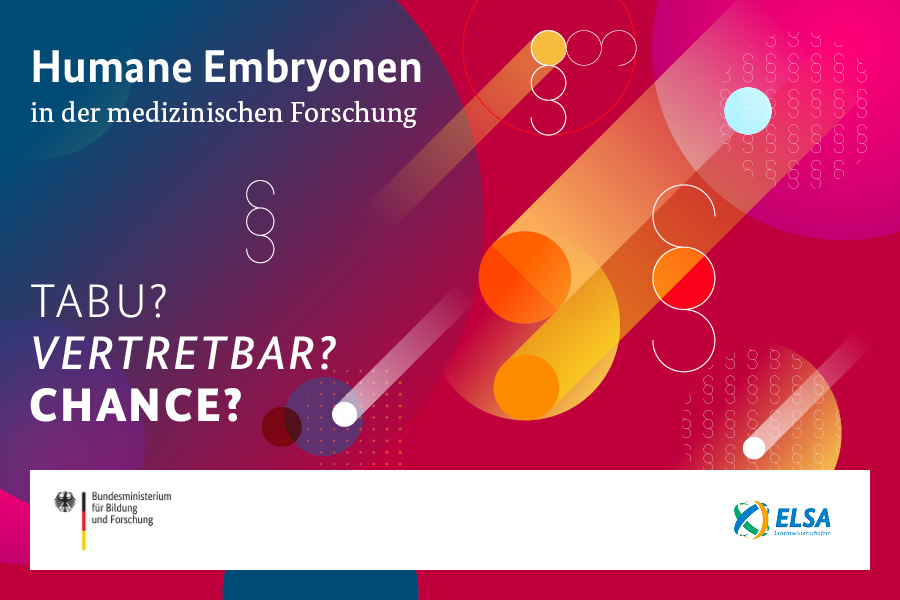
Moderator: Volkart Wildermuth,
Science journalist
9 October, 09.30 – 18.00
| from 8.30 |
Registration |
| 09.30 |
Opening and welcome |
| 09.50 |
Greeting |
| 10.05 |
Keynote lecture „Cell biology at the earliest stages of development – perspectives for modern medicine” |
| 10.35 |
Introduction into the field of concern |
| 11.10 | Break |
|
Session 1: “Need of research on human embryos in vitro and ethical and legal implications“ |
|
| 11.30 |
Perspectives of in vitro human embryo research |
| 11.50 |
An Opportunity to Restore Reproductive Health |
| 12.10 |
The use of embryos in research – challenges and obstacles for Germany in European context |
| 12.25 | Question & answer session |
| 12.40 - 14.00 | Lunch |
| 14.05 |
International Legal Comparative Perspectives on Human Embryo Research |
| 14.25 |
Constitutional situation from the German Perspective |
| 14.45 | Question & answer session |
| 15.00 |
Challenges for an ethical-legal discussion in a pluralistic society |
| 15.45 | Break |
| 16.15 |
Panel discussion: “Do we want to dare this progress? - On the debate about human embryos in medical research" |
| 17.45 | Summary and outlook on the next day Volkart Wildermuth, Science journalist |
| 18.00 | Dinner |
9 October, 19.30 – 22.00
| 19.30 |
Special lecture – open to the public |
| 21.00 |
Open discussion with drinks |
10 October, 09.00 – 14.00
| 8.30 | Registration |
| 9.30 | Greeting Volkart Wildermuth, Science journalist |
| Session 2: “Stem cells and derivatives: scientific, ethical and legal implications” | |
| 9.35 |
Potential and limitations in applications of human stem cells and organoids |
| 9.55 |
Therapeutic approaches using stem cells |
| 10.15 | Question & answer session |
| 10.30 |
Discussion of ethical, legal and social aspects: Perspective of the National Central Ethics Commission for Stem Cell Research (ZES): Patient and Societal perspective: Legal classification: Ethical perspective: Open discussion of ethical, legal and social aspects with the panel, extended by: |
| 12.45 |
Interim summary of the plenary sessions and transition to the topics and objectives of the workshops |
| 13.05 | Presentation of the parallel thesis workshops (multidisciplinary format for in-depth discussion of current issues) Volkart Wildermuth |
| 13.15 | Break |
10 October, 14.00 – 18.00
| 14.15 - 16.15 |
WS1: Further development of reproductive medicine regulations and their ethical and legal implications for the handling of surplus human embryos. |
| 14.15 - 16.15 |
WS2: Framework of research on and with human pluripotent stem cells and human cellular entities ("-oids") |
| 16.30 | Break |
| 17.15 |
Presentation of workshop results to BMBF |
| 17.45 | Closing Remarks |